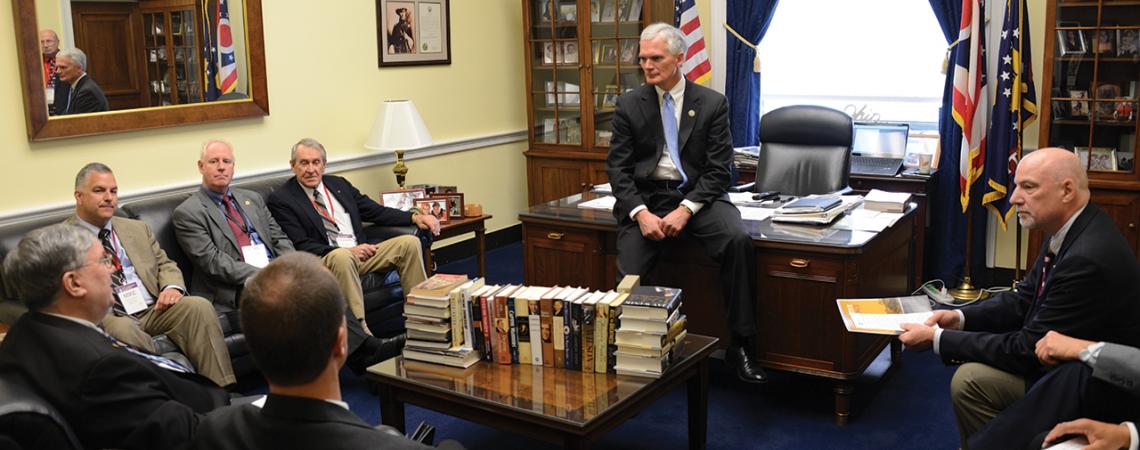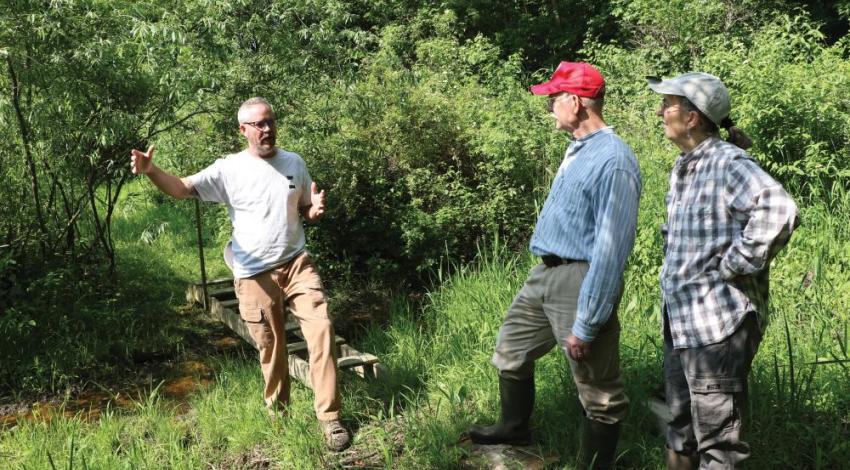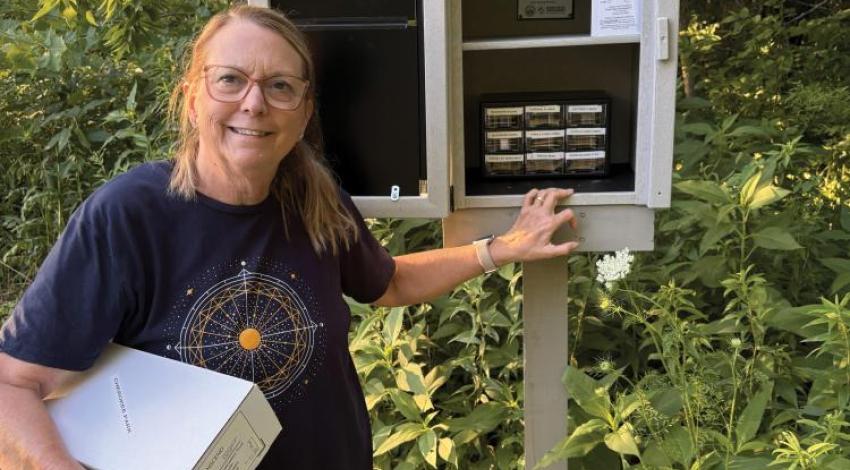U.S. Rep. Bob Latta (center), of Bowling Green and Ohio’s 5th District, goes over issues important to electric cooperatives and their members during meetings with co-op members, board members, and staff in late April.
Ohio electric cooperative trustees and employees took their policy priorities to Capitol Hill in late April at the NRECA Legislative Conference in Washington, D.C.
Co-op leaders from dozens of states joined Ohio’s delegation for the annual conference, which focused this year on building momentum from the successful Co-ops Vote campaign during the 2016 election.
“Rural America stood up with a louder voice than before,” said Jim Matheson, president and CEO of NRECA, in an address to Legislative Conference attendees. “In a time of uncertainty, it’s all the more important for us to remain at the table, be active participants in the policy environment, and assert ourselves as the voice of American consumers.”
In personal meetings with legislators and their aides, Ohio’s attendees discussed a broad range of policy topics — including obvious areas of concern, such as rolling back EPA regulations and protecting the Rural Utilities Service loan program, to under-the-radar issues impacting cooperatives, such as federal land management policy and the Cadillac tax on health insurance plans.
According to Marc Armstrong, director of government affairs for Ohio’s Electric Cooperatives, it’s critical for co-op leaders to get face time with their representatives in Congress.
“We can’t expect our elected officials to always know what our legislative priorities are,” Armstrong said. “It is important for our leaders to convey — from a local perspective — what issues affect cooperative businesses and our members’ electric service.”
While most of Ohio’s members of Congress are aware of a prominent handful of co-ops’ policy priorities, many are not always aware of the breadth of issues facing co-ops. Co-ops are not just power suppliers to rural Ohioans — they are also employers and economic engines of local economies.
“Our co-ops face an array of policy issues — issues that affect our ability to deliver reliable, affordable power to our members, but also issues that can make it difficult for co-ops to provide for their hardworking employees,” Armstrong said. “It’s important that our policymakers are aware of all these issues and not just the ones that make headlines.”
While co-op leaders make the trip to Capitol Hill to advocate for members, it does not require a flight to D.C. for a co-op member to make his or her voice heard. Members can visit www.action.coop, where they can educate themselves on energy policy and send messages to their representative and senators on behalf of their cooperative.
Topics on the table
Ohio’s Legislative Conference attendees had a full list of policy issues to discuss with members of Congress:
Rural Utilities Service (RUS) Electric Loan Program: The Rural Utilities Service Electric Loan Program provides affordable capital to electric cooperatives for infrastructure development. Co-op leaders asked members of Congress to show their support of the RUS loan program, and to support future legislation allowing co-ops to pre-pay RUS loans without penalties.
Regulatory Relief: The new administration has issued executive orders to review and revise both the Clean Power Plan and The Waters of the United States rules. Electric co-ops welcome the change of direction from these costly and unnecessary regulations. Electric co-ops believe in being good stewards of the environment, but red tape and expensive rulemaking only increase members’ rates.
Full “Cadillac Tax” Repeal: Electric cooperatives around the country provide health insurance benefits to more than 100,000 employees, retirees, and their families. Because co-op employees live in rural communities, where limited access to health care drives costs higher, many co-op health insurance plans would be penalized with the “Cadillac tax” included in the Affordable Care Act. Co-ops across the country, including Ohio co-ops, asked their members of Congress to support the growing bipartisan effort to permanently repeal the Cadillac tax.
Support Improved Federal Land Management Policies: Federal land management policies make it difficult for co-ops to maintain rights-of-way on or near federal property. Co-op leaders urged legislators to support bipartisan legislation that would streamline the rights-of-way review process and reduce the risk of liability.









